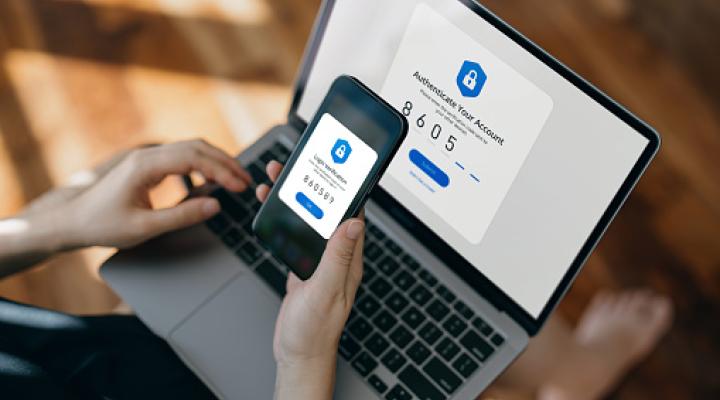Consejos para prevenir fraudes

By following these tips, you can enhance your online safety and protect yourself from potential fraud.
Strengthen Personal Information Protection
- Safeguard your Social Security number (SSN) and any USCIS information: Avoid carrying your SSN card with you and refrain from sharing it unless necessary. Securely store physical documents containing your SSN and USCIS details +in a safe place.
- Use strong and unique passwords: Create strong passwords for all your accounts, combining uppercase and lowercase letters, numbers, and special characters. Avoid using easily guessable information such as your name, birthdate, or address.
- Enable two-factor authentication (2FA): Activate 2FA whenever possible, as it adds an extra layer of security by requiring a second form of verification, such as a code sent to your mobile device.
- Regularly update software and devices: Keep your operating system, apps, and antivirus software up to date to protect against potential vulnerabilities.
Prevent Identity Theft
- Be cautious with personal information sharing: Avoid sharing personal details, such as your full name, address, or financial information, on unsecured websites or with unknown individuals or organizations.
- Shred sensitive documents: Dispose of documents containing personal information, such as bank statements and credit card bills, by shredding them to prevent “dumpster diving,” a technique used to retrieve information from people’s trash that could be used to gain access to a computer network or their personal data.
- Monitor your financial accounts: Regularly review your bank statements, credit card bills, and financial transactions to quickly identify any unauthorized activity. Report any suspicious transactions to your financial institution.
- Check your credit reports: Obtain free credit reports from major credit bureaus annually and review them for any inaccuracies or signs of unauthorized accounts or loans.
Guard against Phishing Attacks
- Be skeptical of unsolicited communication: Exercise caution when receiving emails, phone calls, or messages requesting personal or financial information. Avoid clicking on suspicious links or downloading attachments from unknown sources.
- Verify website security: Before entering sensitive information on a website, ensure it is secure by looking for "https://" in the URL and a lock icon in the browser's address bar.
- Avoid sharing personal information via email or chat: Legitimate organizations typically don't request sensitive data via email or chat. Be wary of anyone asking for personal information through these channels.
- Educate yourself on common phishing techniques: Stay informed about the latest phishing techniques and tactics employed by scammers. Regularly review resources provided by reputable sources like banks, government agencies, and cybersecurity organizations.
Secure Online Transactions
- Use trusted and secure websites: Ensure the websites you use for online transactions are reputable, secure, and encrypted. Look for trust indicators like security badges, privacy policies, and customer reviews.
- Verify seller legitimacy: When making online purchases, buy from established sellers and verify their reputation through reviews and ratings. Avoid deals that seem too good to be true.
- Use secure payment methods: When possible, use secure payment methods such as credit cards or digital wallets, which offer additional layers of protection and fraud monitoring.
- Keep transaction records: Maintain records of online transactions, including receipts, order confirmations, and shipping details. This documentation can be useful for dispute resolution.
Recognize Scams Targeting Immigrants
- Stay informed about common scams: Educate yourself on prevalent scams targeting immigrants, such as immigration fraud, job scams, and fake government agencies requesting money or personal information.
- Seek advice from trusted sources: When dealing with immigration-related matters, consult with reputable immigration lawyers or organizations to ensure you receive accurate information and guidance.
- Be cautious with wire transfers: Avoid sending money via wire transfer to unknown individuals or organizations, especially if you are unsure about their legitimacy.
- Report suspicious activities: If you encounter or suspect a scam targeting immigrants, report it to local law enforcement or appropriate authorities, such as the Federal Trade Commission (FTC).
Proteger la información personal y financiera de fraudes y estafas supone estar alerta y tomar medidas proactivas. Al implementar estos consejos y prácticas, puede minimizar el riesgo de robo de identidad, los ataques de phishing y convertirse en víctima de estafas comunes. Stay informed, be cautious, and prioritize the security of your sensitive information to safeguard your online presence.
The information provided on www.onepercentforamerica.org is intended for general informational purposes only. No debe tomarse como asesoramiento profesional ni reemplazar la orientación de un profesional.



